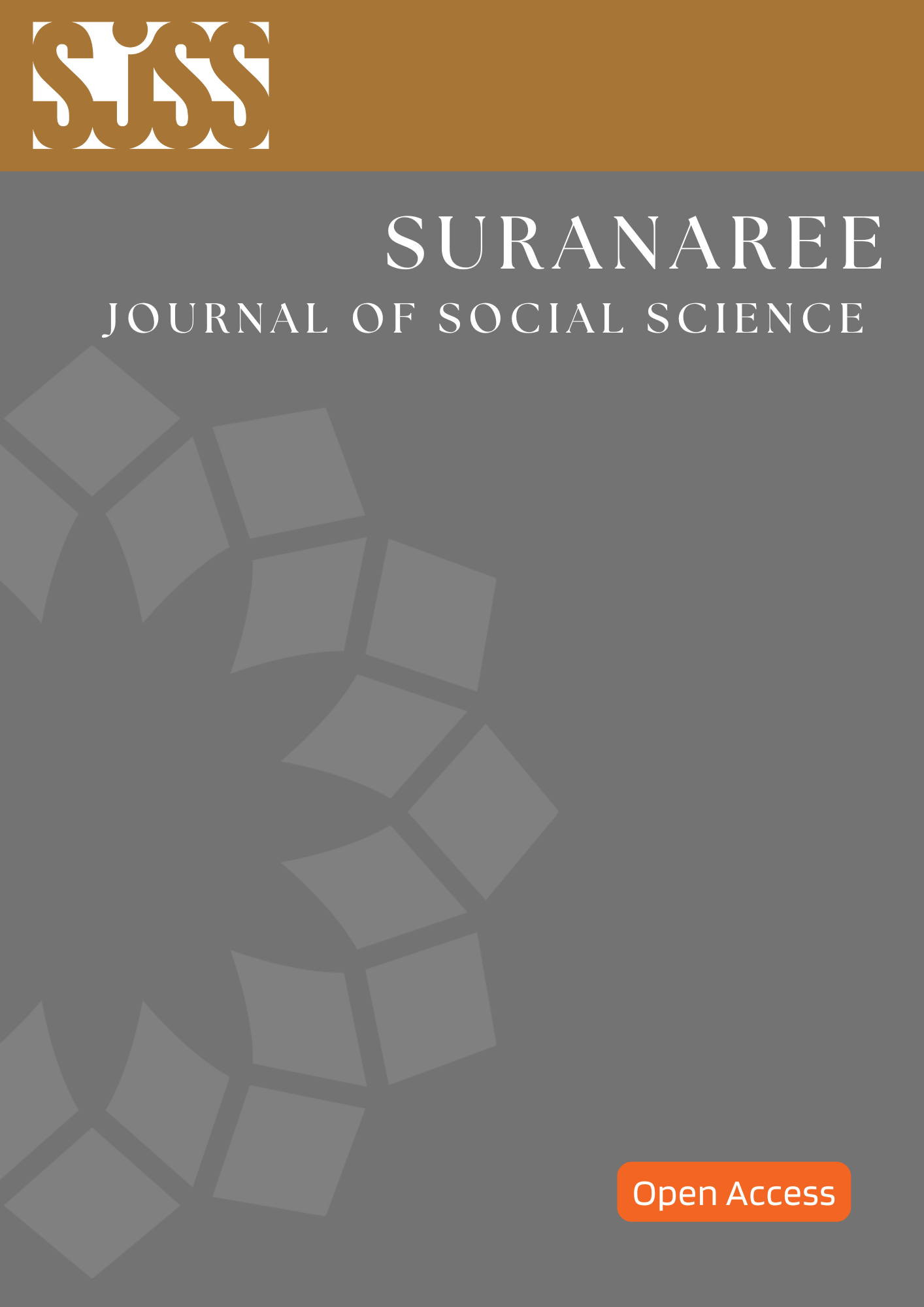Are our Chinese Guests Annoying? : An Analysis of Thai Hosts’ Perceptions of the Chinese Tourists
Main Article Content
Abstract
Along with the positive economic impact brought by the Chinese market, the negative social impacts have been the cultural clashes which have been reflected through complaints and comments made through several media. This study aimed to examine how the Thai hosts consisting of 401 respondents, working in the tourism industry including hotel staff, tour guides, tour operators and airline flight attendants, perceive the behaviors of the Chinese tourists or their guests. The behaviors studied were identified by reviewing bulletins, discussion boards, reviews and comments on online media. A previous study of similar topic done in Macao was closely reviewed. 19 behaviors of the Chinese tourists were perceived by the Thai hosts as frequent and annoying. These behaviors, which require immediate attention to, included talking loudly in public, making noise eating in a restaurant, rushing into a place/vehicle in a chaotic manner, bumping into/shoving others in a crowd, shouting/calling others in a hotel/public place, spilling food on the table, cutting a queue, allowing children to run around disturbing others, smoking in a non-smoking area, getting into the elevator/vehicle before others get off, walking obstructing others in the footpath, not caring to observe or learn local customs, littering carelessly, dropping cigarette butts, spitting in public, not flushing the toilet after use, not observing or breaking local traffic rules, wearing indecent clothes /not observing local dress code, and expecting to be served before locals. The relevant stakeholders should pay attention to these 19 behaviors as they occurred frequently and were annoying to the hosts. Other 19 behaviors were perceived to be annoying. However, they occurred less frequently. These behaviors have to be watched out. Three behaviors can be ignored as they were not annoying and not frequent. The tourist’s trying to get a bargain took place frequently but it was considered not annoying. Therefore, this behavior is of low priority. The conclusion gave some ideas on how to deal with the frequent and annoying behaviors.
Article Details

This work is licensed under a Creative Commons Attribution-NonCommercial-NoDerivatives 4.0 International License.
References
Blesic I., Propov-Rajjic, J., Uravic, L., Stankov, U., Deri, L., Pantelic, M., & Armenski T. (2014) An Importance-Performance Analysis of Service Quality in Spa Hotels. Economic Research-Ekonomska Istraživanja. 27:1: 483-495.
Bochner, S. (1982). Culture in Contact: Studies in Cross-Cultural Interaction. Oxford; New York: Pergamon Press.
Boissevain, J. (1979). The Impact of Tourism on A Dependent Island: Gozo, Malta. Annals of Tourism Research. 6(1): 76-90.
Cai, Y. (2015). The Contribution of Salient Mall Attributes to Customer Satisfaction: An Importance - Performance Analysis Across Nations. ASEAN Journal of Management & Innovation. 5(1): 186-200.
China National Tourism Administration. (2013). Guide to Civilized Tourism [On-line]. Available: https://docplayer.net/23935020-Guide-to-civilised-tourism.html
Choibamroong, T. (2017). Expectations and Satisfaction of Chinese Tourists Toward Thailand Tourism Management. Asia-Pacific Social Science Review. 16(3): 30–45.
Chu, R.K.S. & Choi, T. (2000). An Importance-Performance Analysis of Hotel Selection Factors in The Hong Kong Hotel Industry: A Comparison of Business and Leisure Travellers. Tourism Management. 21: 363-377.
Dabphet, S. (2017). Applying Importance-Performance Analysis to Identify Competitive Travel Attributes: An Application to Regional Destination Image in Thailand. Journal of Community Development Research (Humanities and Social Sciences). 10(3): 7-21.
Editor Chiang Rai News. (2015). Chiang Rai’s White Temple Refuses Chinese Tourists for Bad Toilet Manners [On-line]. Available: https://www.chiangraitimes.com/chiang-rais-white-temple-refuses-chinese-tourists-for-bad-toilet-manners.html
Lai, M. L. (2016). The Impact of Mainland Chinese Tourists’ Misbehaviour on Thailand’s Tourism [On-line]. Available:https://www.tcithaijo.org/index.php/jitt/article/download/65739/53742
Lelisa, E., Fentaw, T., & Duba, J. (2018). Assessment of Hotel Service Quality by Using Importance-Performance Analysis (IPA) Model: The Case of Bule Hora and Yabello Town Hotels, Ethiopia. Journal of Tourism, Hospitality and Sports. 36: 18-27.
Li, A. (2013). Why are Chinese Tourists So Rude? A Few Insights [On-line]. Available: https://www.scmp.com/news/china/article/1251239/why-are-chinese-tourists-so-rude
Loi, K. I & Pearce, P. (2015). Annoying Tourist Behaviors: Perspectives of Hosts and Tourists in Macao. In Kam, H. & Li, X. (2015) Chinese Consumers in a New Era: Their Travel Behaviors and Psychology. Oxon: Routledge.
Ministry of Tourism & Sports. (2019). International Tourist Arrivals to Thailand [On-line]. Available: https://www.mots.go.th/more_news.php?cid=522&filename=index
MouaSPY. (2018). Comments on Chinese Tourists [On-line]. Available: https://www.youtube.com/watch?v=TCKnjq5ZVY8
Nisco, A.D., Riviezzo, A., & Napolitano, M.R. (2015). An Importance-Performance Analysis of Tourist Satisfaction at Destination Level: Evidence from Campania (Italy). European Journal of Tourism Research. 10: 64-75.
Obonyo, G. O., Ayieko, M. A., & Kambona, O. O. (2013). An Importance-Performance Analysis of Food Service Attributes in Gastro-Tourism Development in Western Tourist Circuit, Kenya. Tourism and Hospitality Research. 12(4): 188–200.
Parasakul, L. (2019): Assessing Chinese Tourists’ Satisfaction with Their Shopping Experiences in Bangkok Metropolis [On-line]. Available: DOI: 10.1080/19388160.2019.1638864
Pearce, P. L. (1985). The Social Psychology of Tourist Behaviour. Oxford: Pergamon Press.
Phichaiwongphakdee, W. (2018). A Study on the Image of Chinese Tourists Taking Thailand as an Example. In Proceeding of The Seventh Thai-Chinese Strategic Research Seminar (pp 203-219). Lam Taen, Chonburi Province, Thai-Chinese Strategic Research Center.
Phneah, J. (2019). 5 Reasons Why Chinese Tourists Are So Rude [On-line]. Available: http://www.jeraldinephneah.com/5-reasons-why-chinese-tourists-are-so-rude/
Pizam, A. & Reichel, A. (1996). The Effect of Nationality on Tourist Behavior: Israeli Tour Guides’ Perceptions. Journal of Hospitality and Leisure Marketing. 4(1): 23-49.
Pizam, A. Jansen-Verbeke, M. & Steel, L., (1997). Are All Tourists Alike Regardless of Nationality? The Perceptions of Dutch Tour Guides. Journal of International Hospitality, Leisure and Tourism Management. 1(1): 19-40.
Reisinger, Y. & Turner, L. W. (2003). Cross-Cultural Behaviour in Tourism: Concepts and Analysis. Oxford: Butterworth-Heinemann.
Reisinger, Y. (2009). International Tourism: Cultures and Behavior. Burlington MA: Butterworth-Heinemann.
Sun, T. (2018). Chinese Tourist Have No Manners [On-line]. Available: https://medium.com/@tiffany.sun/chinese-tourist-have-no-manners-254d46a713c9
Swarbrooke, J. (1999). Sustainable Tourism Management. Oxon: CABI Publishing.
TAT News. (2019). As Chinese Visitors Bounce Back, Thai Tourism Income Crosses Two Trillion Baht [On-line]. Available: https://www.tatnews.org/2019/01/as-chinese-visitors-bounce-back-thai-tourism-income-crosses-two-trillion-baht/
Wu, M. (2016). Media Representations of Chinese Outbound Tourists’ Behavior, The World Meets Asian Tourists (Bridging Tourism Theory and Practice, Vol. 7) [On-line]. Available: https://doi.org/10.1108/S2042-144320160000007005
Zhang, C.X., Pearce, P. & Chen, G. (2019). Not Losing Our Collective Face: Social Identity and Chinese Tourists’ Reflections on Uncivilized Behavior. Tourism Management. 73(August): 71-82.


